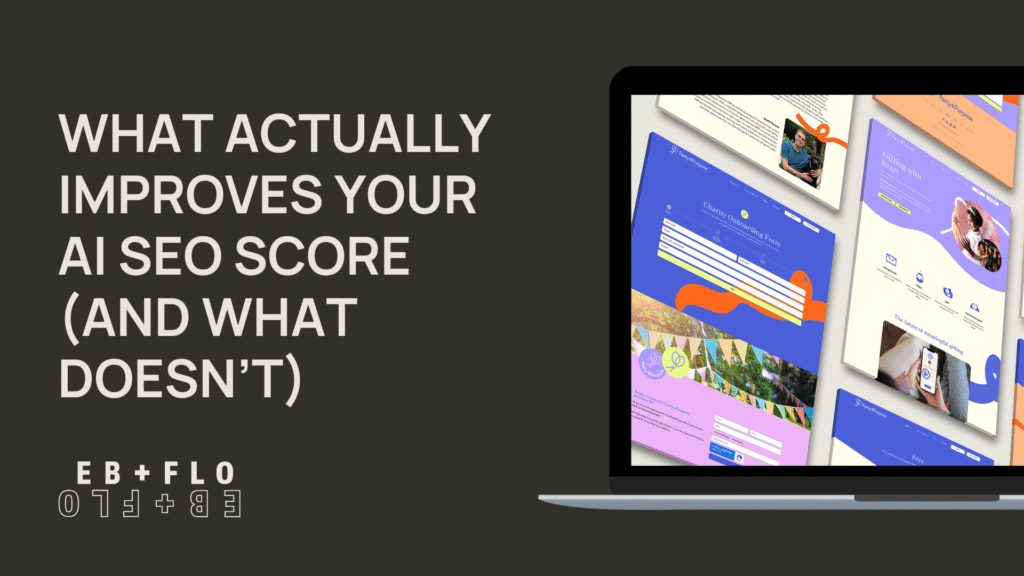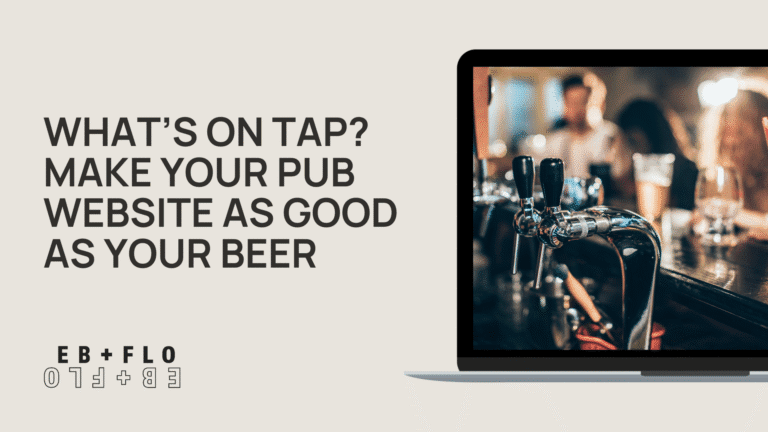If you had just gotten comfortable with regular SEO, surprise! There is a new acronym to think about. AI SEO. And like every other mysterious algorithm update before it, nobody has handed us a clear rulebook.
We are all out here testing, tweaking, and pretending we totally know what we are doing.
Your website now needs to serve both Google’s classic algorithm and its newer AI-powered search experiences. The rules keep evolving, documentation remains limited, and everyone is still learning.
So… what even is AI SEO?
Unfortunately, there is no official handbook.
What we do know is that AI SEO is about optimising for AI-generated results such as Google’s AI Overviews (previously called SGE), ChatGPT responses, and emerging search tools like Perplexity.
Instead of focusing only on ranking in the traditional “ten blue links”, your content now needs to be clear and valuable enough for AI systems to summarise, cite, or reference in those new AI-generated answer boxes at the top of search results.
Estimates vary widely, but studies show that AI Overviews appear for roughly 10% to 50% of Google search queries depending on the category and location.
No pressure.
Remember when SEO was simple? Neither do we.
If this feels familiar, it is because we have been here before. In the early days of SEO, everyone was guessing what Google wanted. Endless updates. Keyword debates. The occasional crisis over whether keywords should make up 2% or 2.5% of your text.
AI SEO is bringing back that same uncertainty, but this time we are optimising for systems that can actually read and understand context. The old tricks like keyword stuffing, generic filler, and robotic writing will not help and can even hurt your results.
If there is any good news, it is this. Google has said that its AI Overviews are “rooted in our core Search ranking and quality systems”. In plain English, if you have already been following good SEO practices, you are already part of the way there.
What actually seems to help (based on what we’ve learned so far)
Like everybody, we are all still figuring this out, but here is what appears to be working.
1. Content depth and structure
Your content should be skimmable, structured, and genuinely helpful. That means:
- Clear headings that describe what is in each section
- Short paragraphs (nobody wants to read your 400-word intro)
- Bullet points and lists where they make sense
- FAQs that answer real questions people actually ask
AI tools favour content that is easy to understand and logically organised. If a human reader cannot quickly find what they need, an AI system will probably struggle too.
2. E-E-A-T (Experience, Expertise, Authoritativeness, Trustworthiness)
Google’s E-E-A-T framework is still one of the clearest indicators of quality content. It focuses on experience, expertise, authoritativeness, and trustworthiness.
That means including:
- Author bios that show you actually know the topic
- First-hand experience and real-world examples
- Credentials and qualifications where relevant
- Transparency about who is behind the content
Strong E-E-A-T signals appear correlated with better rankings across many studies. It is not a single ranking factor, but it contributes to overall content quality that search engines recognise.
3. Internal linking and site clarity
Help AI and humans navigate your site with:
- Logical internal linking that shows how your pages connect
- A clear site structure that makes sense
- Descriptive anchor text rather than generic “click here” links
4. Schema markup and metadata
Behind-the-scenes details help AI understand your content.
- Use schema markup to give context to your pages
- Write proper title tags and meta descriptions
- Add accurate, descriptive alt text for images
5. Freshness signals
Keep your content updated. Many SEO experts believe that AI and search algorithms prefer recent, accurate information, especially for fast-moving topics. That old 2019 blog about social media trends? Update it or archive it.
6. Real human tone
Ironically, AI prefers human-sounding writing. Write as if you are talking to a real person, not an algorithm. Use natural language, conversational phrasing, and even humour when it fits.
What definitely doesn’t help
1. Keyword stuffing or trying to outsmart AI
Adding “AI” to every heading will not boost your rankings. Writing purely for keyword density is an outdated tactic.
Google does not dislike AI-assisted content, but it does dislike low-quality, unedited, or generic material. If you use AI tools to write (and let’s be honest, most of us do), make sure you:
- Add your own insights and experience
- Fact-check everything
- Use your brand voice
- Make it genuinely useful
2. Generic filler that adds no value
You know that paragraph that says nothing but takes up space? Delete it.
Old SEO advice used to say “more words = better”. That no longer applies. AI models focus more on value density. Every paragraph should answer a question, provide context, or move the reader closer to understanding something.
3. Ignoring visuals and alt text
Images matter. Visuals help both users and AI systems understand your page.
Good alt text is not just for accessibility (though that is reason enough). It gives context. Describe what is actually in the image in a clear, specific way. And always compress your images. A beautiful photo that takes eight seconds to load helps no one.
4. Writing for bots instead of readers
If your content feels like it was written only to please search engines, you have already lost. Google’s own documentation emphasises creating “helpful, reliable, people-first content”.
Before you publish, ask yourself:
Would you actually send this article to a friend who needed help with this topic?
Would you read it all the way through yourself?
If not, AI probably will not recommend it either.
It’s an ongoing experiment
The truth is that everyone (including us!) is still testing, learning, and adjusting to what works best.
AI SEO is evolving faster than anyone can document. What works today might not work next month. Some early research suggests websites could see notable shifts in organic traffic as AI Overviews become more common, but the full impact is still uncertain.
That is not a reason to panic, it is a reason to adapt.
SEO has always been about balance: humans first, algorithms second. AI SEO does not change that, it simply makes it more visible.
So our advice is simple. Do the work. Create something worth citing. Be the expert that AI wants to reference.
And when the next update inevitably arrives, you will have built something that still matters.
Information current as of November 2025.




